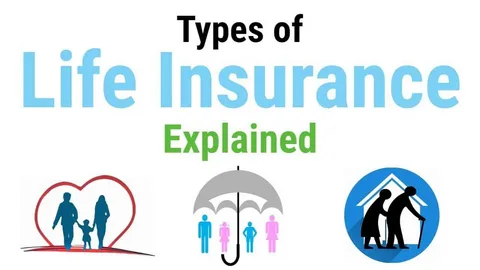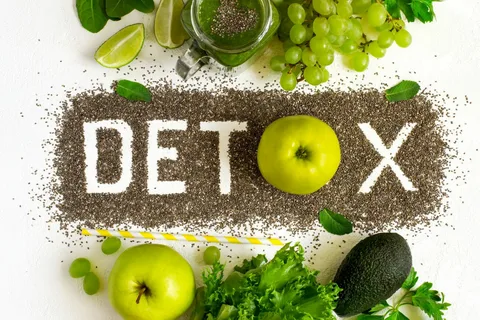Detox Diets: Myths and Facts
In recent years, detox diets have gained immense popularity as individuals seek ways to cleanse their bodies and improve their overall health. These diets often promise quick fixes, weight loss, and enhanced energy levels. However, with the rise of detox diets, it is essential to separate fact from fiction. This article explores the myths and facts surrounding detox diets, helping you make informed decisions about your health.
1. Understanding Detox Diets
Detox diets, commonly referred to as cleansing diets, typically involve short-term eating plans designed to eliminate toxins from the body. They often emphasize consuming whole foods, juices, or supplements while avoiding processed foods, sugar, and alcohol. The premise is that by removing these substances, the body can detoxify and rejuvenate itself. Detox diets can vary significantly in their structure, duration, and restrictions, with some lasting a few days and others extending over several weeks.
2. The Body’s Natural Detoxification Process
Before diving into the myths surrounding detox diets, it is crucial to understand that the human body is inherently equipped to detoxify itself. The liver, kidneys, lungs, and skin work together to filter and eliminate toxins. The liver metabolizes substances and produces bile, which helps remove waste. The kidneys filter waste products from the blood, producing urine that carries toxins out of the body. The lungs expel carbon dioxide, a waste product of respiration, while the skin eliminates toxins through sweat. Given this natural detoxification process, many experts argue that extreme detox diets are unnecessary for maintaining good health.
3. Common Myths About Detox Diets
One of the most pervasive myths about detox diets is the belief that they can effectively remove toxins from the body. Proponents often claim that these diets can eliminate harmful substances, but scientific evidence supporting this claim is lacking. The body’s natural detoxification systems, including the liver and kidneys, are efficient at removing toxins without the need for extreme dietary interventions. Healthy lifestyle choices, such as a balanced diet, regular exercise, and staying hydrated, are far more effective in supporting the body’s natural detoxification processes.
4. The Weight Loss Myth
Many people are drawn to detox diets with the expectation of rapid weight loss. While some individuals may lose weight during a detox diet, much of this weight loss is often temporary. Weight loss during detox diets is usually due to a reduction in water weight and muscle mass rather than fat loss. Once normal eating resumes, individuals often regain the weight they lost. For sustainable weight loss, it is essential to adopt long-term dietary and lifestyle changes rather than relying on short-term detox plans.
5. Safety Concerns
With the rise of detox diets, many products and programs have emerged, claiming to provide quick fixes for health issues. However, not all detox diets are created equal, and some can be dangerous. Some detox diets involve extreme calorie restriction or the use of laxatives and diuretics, which can lead to nutrient deficiencies, dehydration, and other health issues. It is crucial to consult with a healthcare professional before embarking on any detox regimen, especially if you have underlying health conditions.
6. The Energy Boost Myth
Detox diet advocates often claim that these diets can increase energy levels and improve overall vitality. While some individuals may experience an initial surge in energy during a detox, this effect is often short-lived. The initial boost in energy may result from a temporary reduction in processed foods and sugar consumption, leading to improved mood and focus. However, prolonged detox diets may result in fatigue due to inadequate calorie intake and nutrient deficiencies. A balanced diet rich in whole foods is a more effective way to maintain energy levels in the long run.
7. Detox Supplements: Fact or Fiction?
The market is flooded with detox supplements, including powders, teas, and pills that promise quick detoxification results. Many people believe that these supplements are essential for successful detoxification. However, most of the claims made by detox supplement manufacturers are not supported by scientific evidence. In many cases, the body can detoxify itself without the need for additional supplements. A healthy diet rich in fruits, vegetables, and whole grains provides the necessary nutrients for optimal detoxification.
8. Supporting Detoxification Naturally
Despite the myths surrounding detox diets, there are facts worth considering. While extreme detox diets may not be necessary, adopting a healthy diet can support the body’s natural detoxification processes. Consuming a variety of nutrient-dense foods can help ensure that your body has the vitamins and minerals needed for optimal liver and kidney function. Foods rich in antioxidants, fiber, and essential nutrients can aid the detoxification process.
9. The Role of Hydration
Staying hydrated is crucial for supporting the body’s natural detoxification processes. Water helps flush out waste products and supports kidney function. Aim to drink plenty of water throughout the day to maintain hydration levels. Additionally, incorporating hydrating foods like fruits and vegetables can enhance your overall fluid intake. Herbal teas and broths can also contribute to hydration and provide beneficial nutrients.
10. Whole Foods for Detoxification
Incorporating whole foods into your diet can have a positive impact on your overall health. Foods rich in antioxidants, such as berries, nuts, and dark chocolate, can help combat oxidative stress and support detoxification. Leafy greens, cruciferous vegetables, and citrus fruits are excellent choices as well. These foods provide essential nutrients that enhance the body’s natural detoxification pathways.
11. Alternatives to Detox Diets
If you’re looking to improve your health without resorting to extreme detox diets, consider several alternatives. Focus on consuming a balanced diet rich in whole foods, which ensures you’re getting the necessary nutrients to support your body’s natural detoxification processes. Additionally, regular exercise plays a vital role in supporting overall health and well-being. Aim for at least 150 minutes of moderate-intensity exercise each week to enhance circulation and metabolic processes.
12. Mindful Eating Practices
Practicing mindful eating can enhance your overall well-being. Paying attention to your body’s hunger and fullness cues can lead to healthier food choices and improved digestion. Being aware of what you eat and how it makes you feel can help you establish a healthier relationship with food. By incorporating mindfulness into your eating habits, you can better appreciate your meals and make more conscious choices that support your health.
13. The Importance of Stress Management
Chronic stress can negatively impact your health, including your body’s ability to detoxify. Engaging in stress-reducing practices such as yoga, meditation, or deep breathing exercises can support your mental and emotional well-being. Prioritizing self-care and finding effective ways to manage stress can enhance your overall health and improve your body’s natural detoxification processes.
14. Consulting a Professional
If you’re considering making significant changes to your diet or health regimen, it’s always a good idea to consult a healthcare professional or registered dietitian. They can provide personalized advice based on your individual health needs and goals. A professional can help you navigate the vast array of dietary options available and determine the best approach for achieving your health objectives.
15. Conclusion
Detox diets may seem appealing, but it is essential to separate the myths from the facts. While the body is naturally equipped to detoxify itself, adopting a balanced diet, staying hydrated, and engaging in regular physical activity can support your overall health and well-being. Instead of resorting to extreme detox diets, focus on making sustainable lifestyle changes that promote long-term health. Listen to your body, consult with professionals, and embrace a holistic approach to well-being. By doing so, you can achieve optimal health without the need for drastic measures.











2 thoughts on “Detox Diets: Myths and Facts”